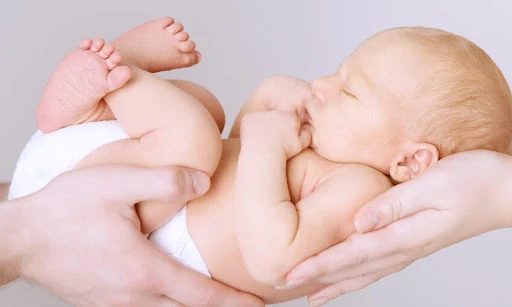The question of where babies come from is a fundamental aspect of human life and curiosity. It's a topic that ranges from the biological to the social and even the emotional dimensions of existence. This article aims to provide a clear and comprehensive explanation suitable for various age groups and levels of understanding.
The Biological Perspective
From a biological standpoint, the creation of a baby involves several critical stages:
1. Conception
- Fertilization: This process begins with the fusion of a sperm cell from the male and an egg cell from the female. Typically, this occurs in the fallopian tube of the female reproductive system. Each sperm and egg carries half the genetic material required to form a new human being.
- Genetic Combination: Once the sperm penetrates the egg, their genetic materials combine to form a zygote, the first cell of a new individual.
2. Development:
- Zygote to Embryo: The zygote undergoes rapid cell division as it travels down the fallopian tube to the uterus. Around a week after fertilization, it implants into the uterine wall, marking the beginning of embryonic development.
- Embryo to Fetus: Over the next several weeks, the cells differentiate and organs begin to form. By the end of the eighth week, the embryo is termed a fetus. The fetus continues to grow and develop all the way up to birth.
3. Gestation:
- Pregnancy: The gestation period for humans typically lasts about 40 weeks from the last menstrual period to birth. During this time, the fetus grows in size and complexity, preparing for life outside the womb.
4. Birth:
- Labor and Delivery: When the fetus is fully developed, hormonal changes trigger labor, leading to the baby being born through the birth canal or, in some cases, via surgical delivery (Cesarean section).
The Social and Emotional Perspective
Beyond the biological process, the arrival of a baby has profound social and emotional implications:
1. Family Dynamics:
- Parenthood: The birth of a baby often marks the transition into parenthood, a significant life event that comes with new responsibilities and joys. Parents bond with their newborn, providing care, love, and guidance.
2. Cultural Practices:
- Traditions and Celebrations: Different cultures have various traditions and rituals surrounding birth and the introduction of a new baby into the community. These can include naming ceremonies, baby showers, and other forms of celebration.
3. Emotional Impact:
- Bonding: The emotional bond between parents and their baby is crucial for the child’s development. This bond forms through physical closeness, care, and affection.
Educational Approach
Explaining where babies come from requires sensitivity to the age and understanding of the audience:
1. For Young Children:
- Simple, age-appropriate explanations often involve the idea that babies grow inside their mother’s belly and are born when they are ready to live outside.
2. For Older Children and Teens:
- A more detailed explanation involves discussing puberty, the reproductive systems, and the basics of conception and development, often supplemented with educational resources or guidance from trusted adults.
Conclusion
Understanding where babies come from is a multifaceted topic encompassing biological processes, emotional experiences, and social contexts. It highlights the intricate nature of human reproduction and the profound impact of new life on individuals and society. Whether explained in simple terms to a child or in detailed scientific descriptions to an adult, the wonder of how life begins is a cornerstone of human knowledge and experience.

